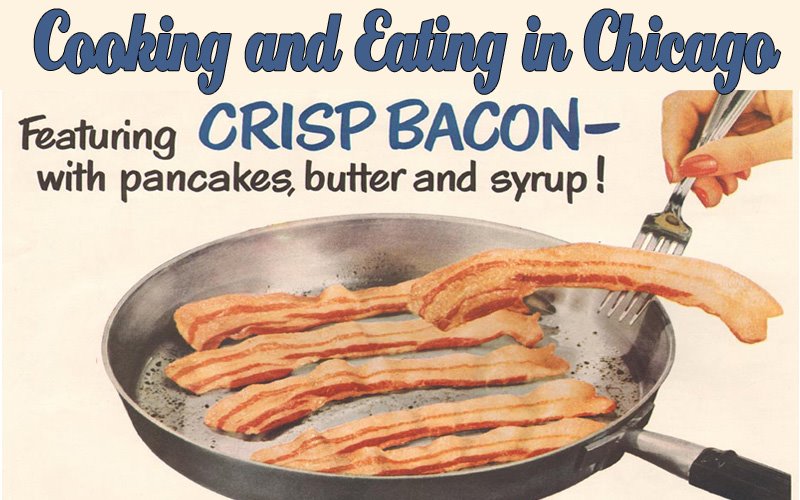
It's pretty hard to surprise me with a gift of a food-related book that I've never heard of, but my brother managed to do it this past Christmas. Thanks, Tim!
In the pre-Christmas flurry of high-end glossy fifty-dollar chef ego-fests (that's right, I'm looking at you Grant
And, unlike the fancy cookbooks listed above, Eat Me
Shopsin is a gem. The initial draw is the freakishly huge menu, the Soup Nazi-like rules one has to follow in order to be permitted to eat there, and the man's generally cranky, curmudgeonly demeanor within our "customer is always right"-minded industry. And that stuff is interesting and amusing.
Here's a sample:
In most cases the reason I don't do special requests has to do with the customer's reason for making it. Most of the time when a customer makes a special request, it's not about the food but about his own desire to be in control and to establish his own specialness. Making people feel special through this kind of ass kissing is one of the services that a restaurant can provide to people who need it, but it's not a service that I want to provide.
I have been cooking for thirty years and I've got a thousand things on the menu and you're going to take one thing and make it different? Uh-uh. Try it my way for once. (p.19)
...and another good one:
Some people tell me that they're deathly allergic to something that and that I have to make sure it's not in their food. I kick them out, too. I don't want to be responsible for anyone's life-or-death situation. I tell them that they should go eat at a hospital. Often, after I do that, they'll back down and tell me, well, they're not that allergic. And then I really want them to leave because now I know they're assholes. (p. 19)But as you read deeper and go beyond the in-your-face irreverence, Shopsin actually has a wonderful philosophy--of life, of food, of relationships--that utterly pervades the book and serves as the foundation and explanation for *why* he employs the rules he does, and *why* he kicks people out that he doesn't care to cook for. And it's this part, the underlying philosophy (which is really an approach to living life, not just cooking or eating) which makes the book so wonderful.
It's about fulfillment. Happiness. His own and that of the people he cooks for.
Here's an exerpt which manages to perfectly capture something which I have come to call the "I deserve to live like a princess" phenomenon which is currently rampant in our society:
...One of the sites I visit regularly is Chowhound, where food-obsessed people like to talk about what they ate last night or where they are going to eat or where they can go for a specific food. It seems as if the majority of the entries read something like "I'm going to such-and-such restaurant. What's the best thing on the menu?"
When I read that, I think: Why would you give a shit what the best thing on the menu is? Maybe you don't like the best thing on the menu. Maybe the so-called best thing is deep-fried yak brains, and maybe, just maybe, deep-fried yak brains don't appeal to you. Why don't you just order what sounds good to you? Well, I already know the answer. It is because people are afraid of being mediocre, of being ordinary.
It wasn't that way twenty or thirty years ago; it was easier to be satisfied. People didn't have cell phones. There were no flat-screen televisions. They didn't feel the need to indulge in eighteen-course dinners that some jerk-off restaurant reviewer described as "orgasmic". They didn't have any of the media hype we have now that is supposed to make us happy or even contenders for happiness. People were more content with their ordinary lives and with their mediocre desires. (p.205)
There are some good recipes and tips about cooking. Kenny's dead-on right when he launches into his treatise on The Right Way to Cook Eggs, or describes the finer points of art of griddling. But the book's beauty lies in the way he looks at life. Cooking can, if approached with a certain mindset, be a very contemplative, meditative activity. One must be very focused on, very much in the moment of a mundane physical activity which is repeated dozens or hundreds of times every day/week/month, and that gives the mind time to meander down some pretty out-there, metaphysical, 'meaning of life'-type paths. Shopsin's clearly spent some time exploring this ground and has emerged with a clear idea of what his food, his restaurant, and his life, are all about.
It's a great read. And it'll take you less time to read it cover-to-cover than you'll spend trying to make one recipe from the Alinea cookbook.
It's a great read. And it'll take you less time to read it cover-to-cover than you'll spend trying to make one recipe from the Alinea cookbook.

i just finished reading the book as well. i hope you'll run, not walk, and rent 'i like killing flies', the doc. about kenny. it's so delightful i've seen it 3 times and feel i will be watching it over and over again. justjoan
ReplyDeletethanks, justjoan. i actually didn't know about the documentary until i started researching shopsin in preparation for this blog entry, so i just found out about it. i'm excited to check it out. thanks for the recommendation!
ReplyDeleteand thanks for reading and commenting.